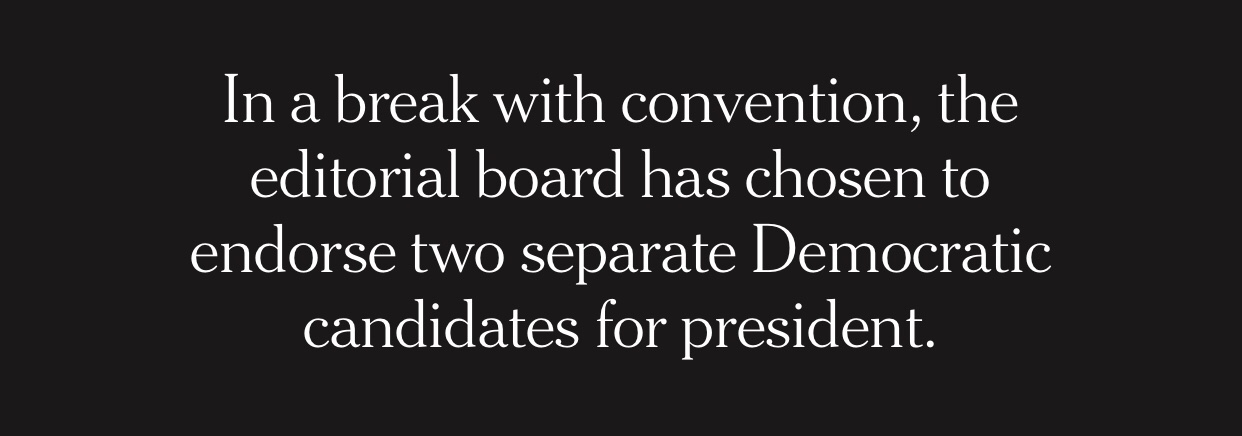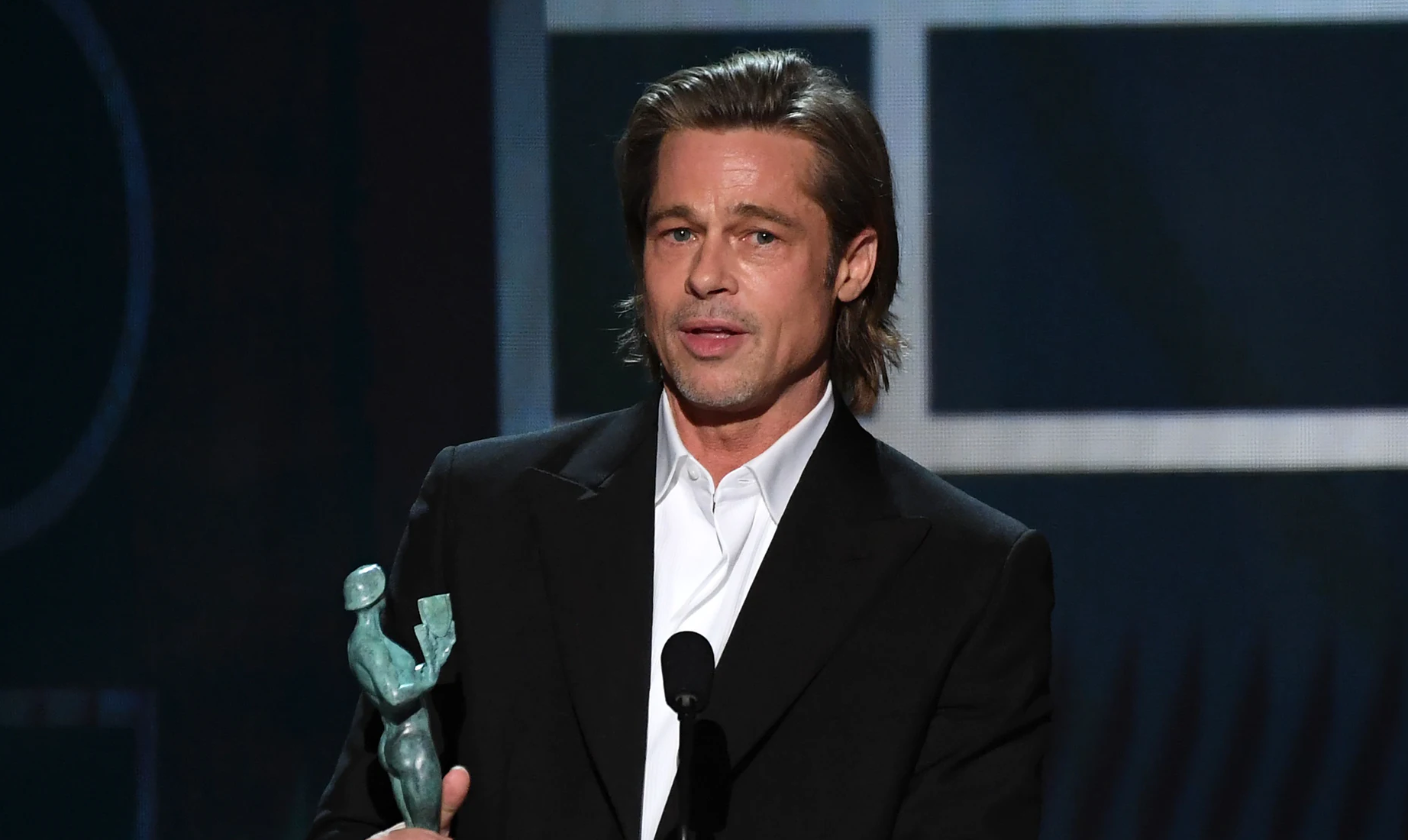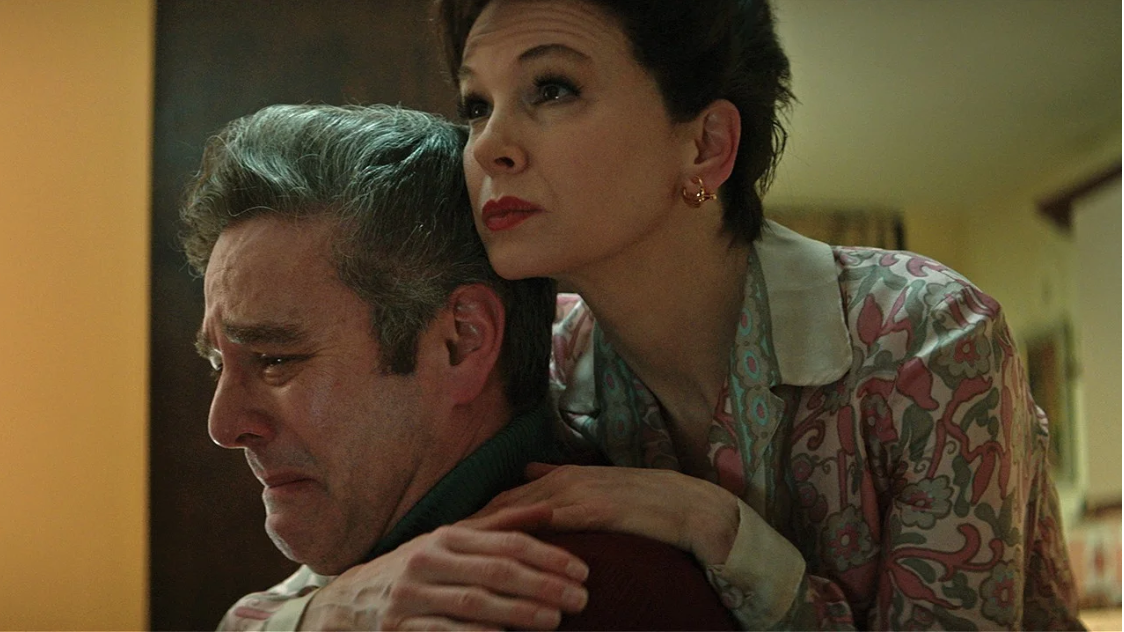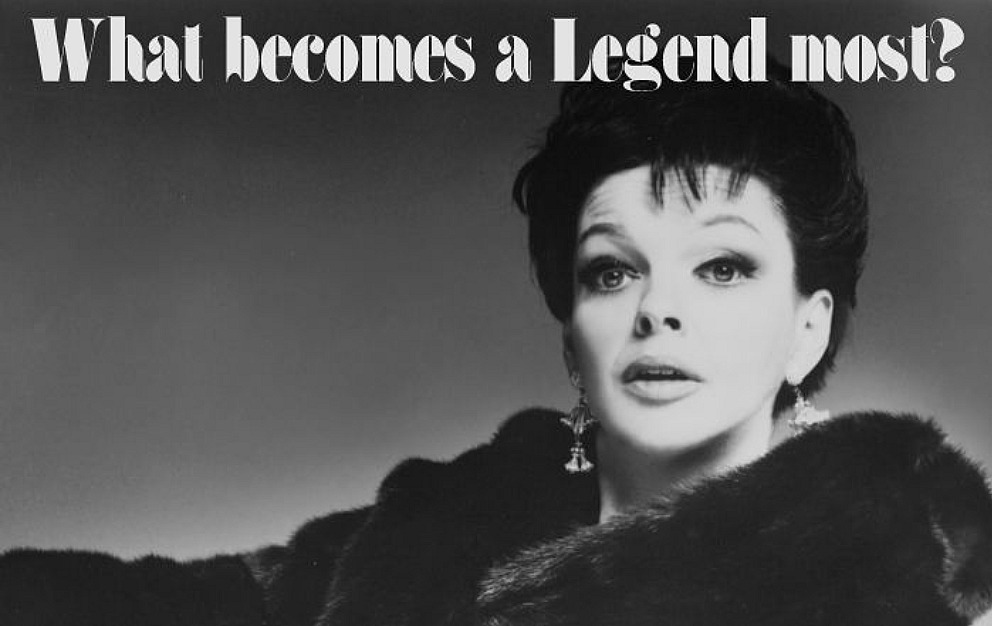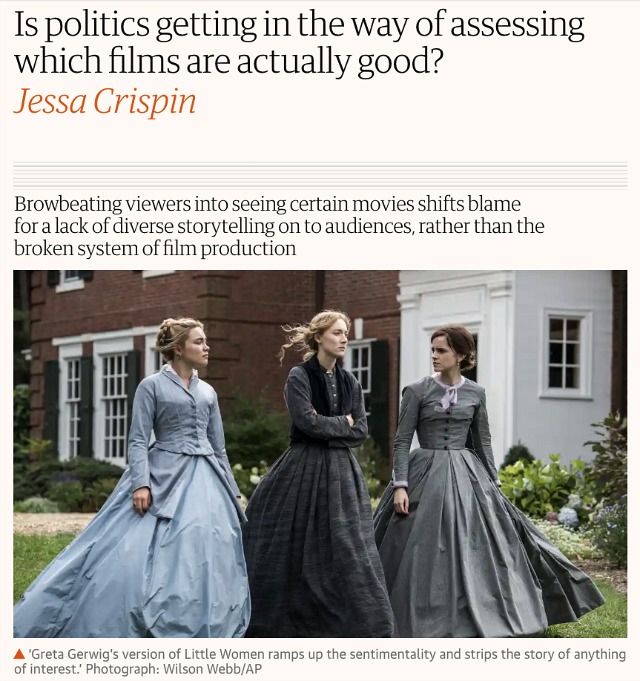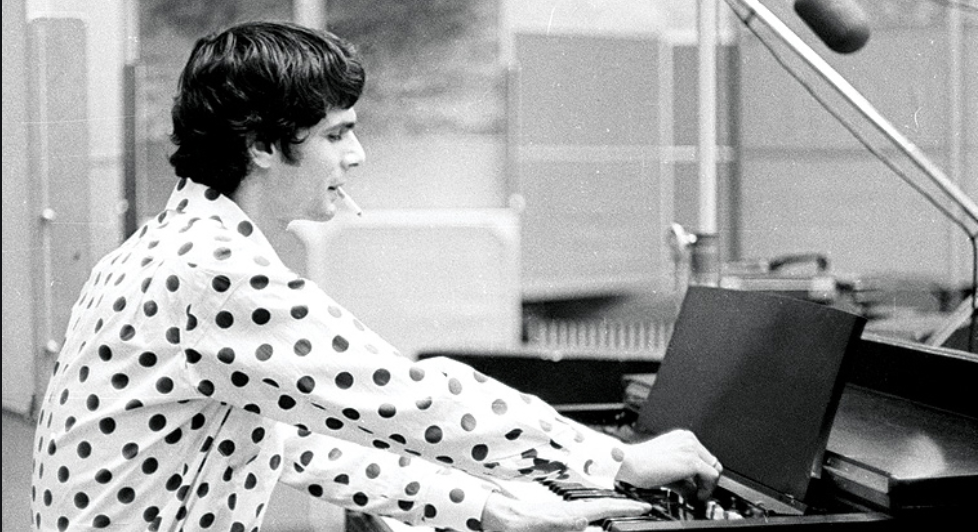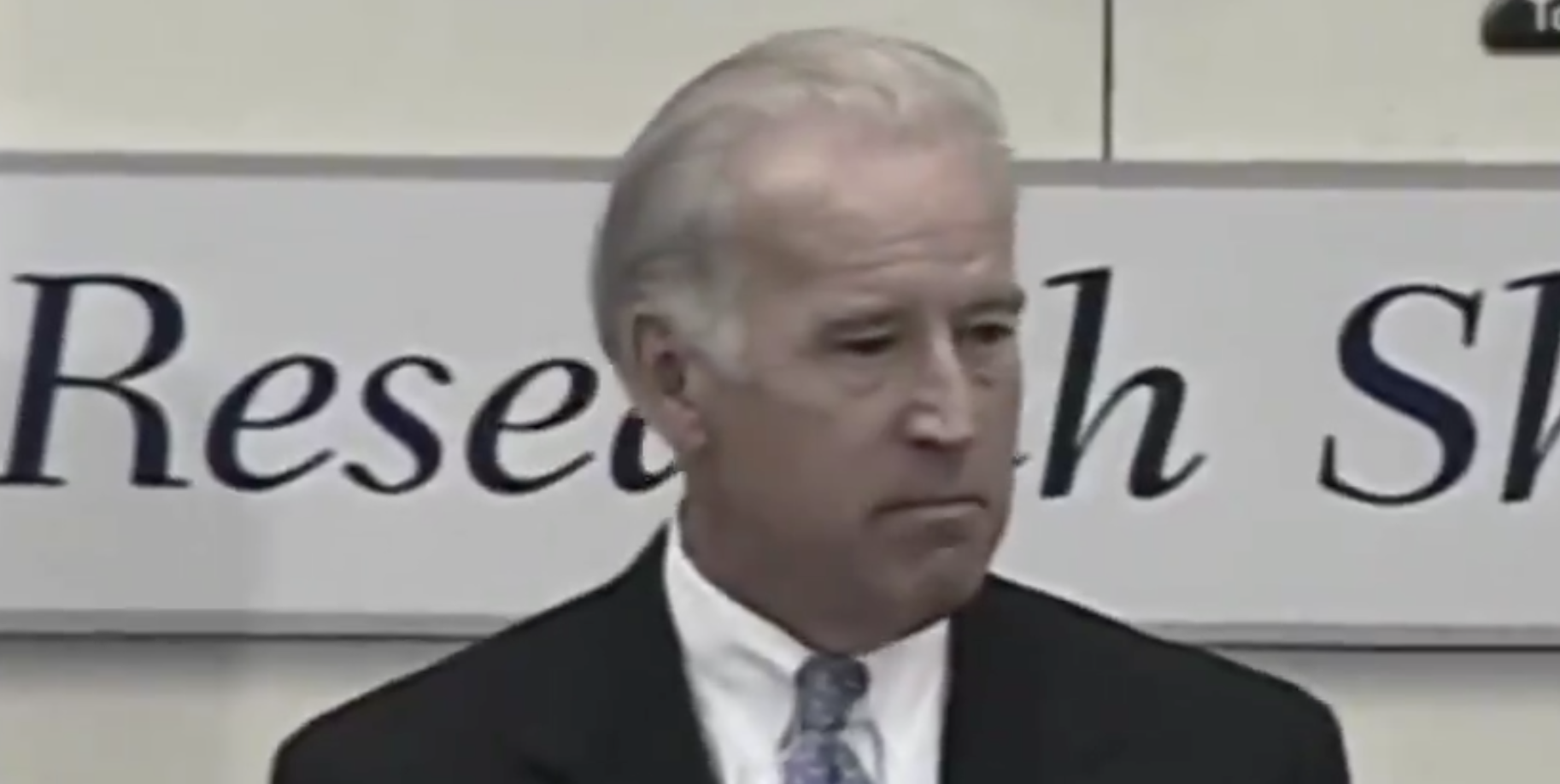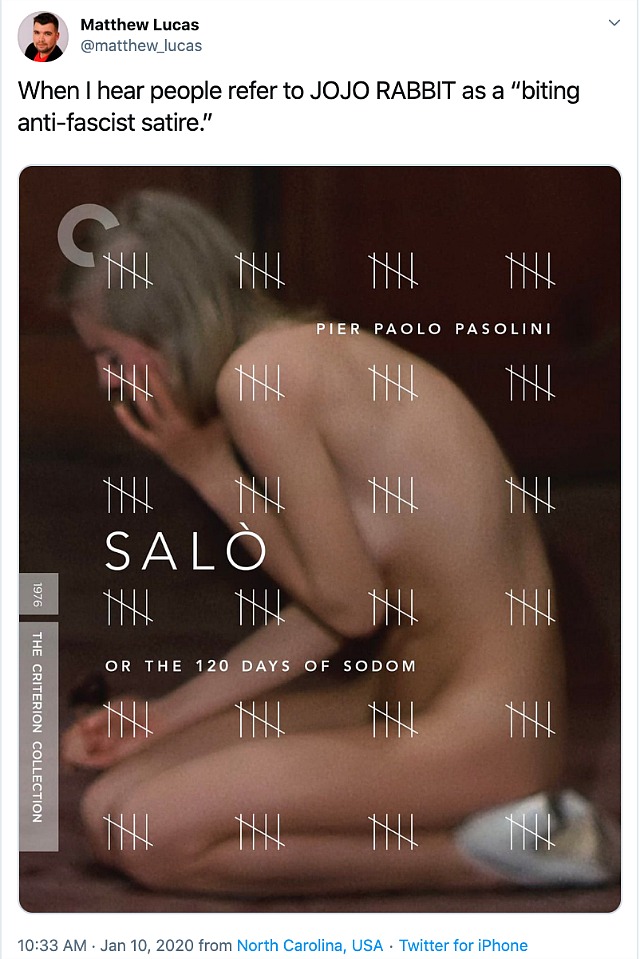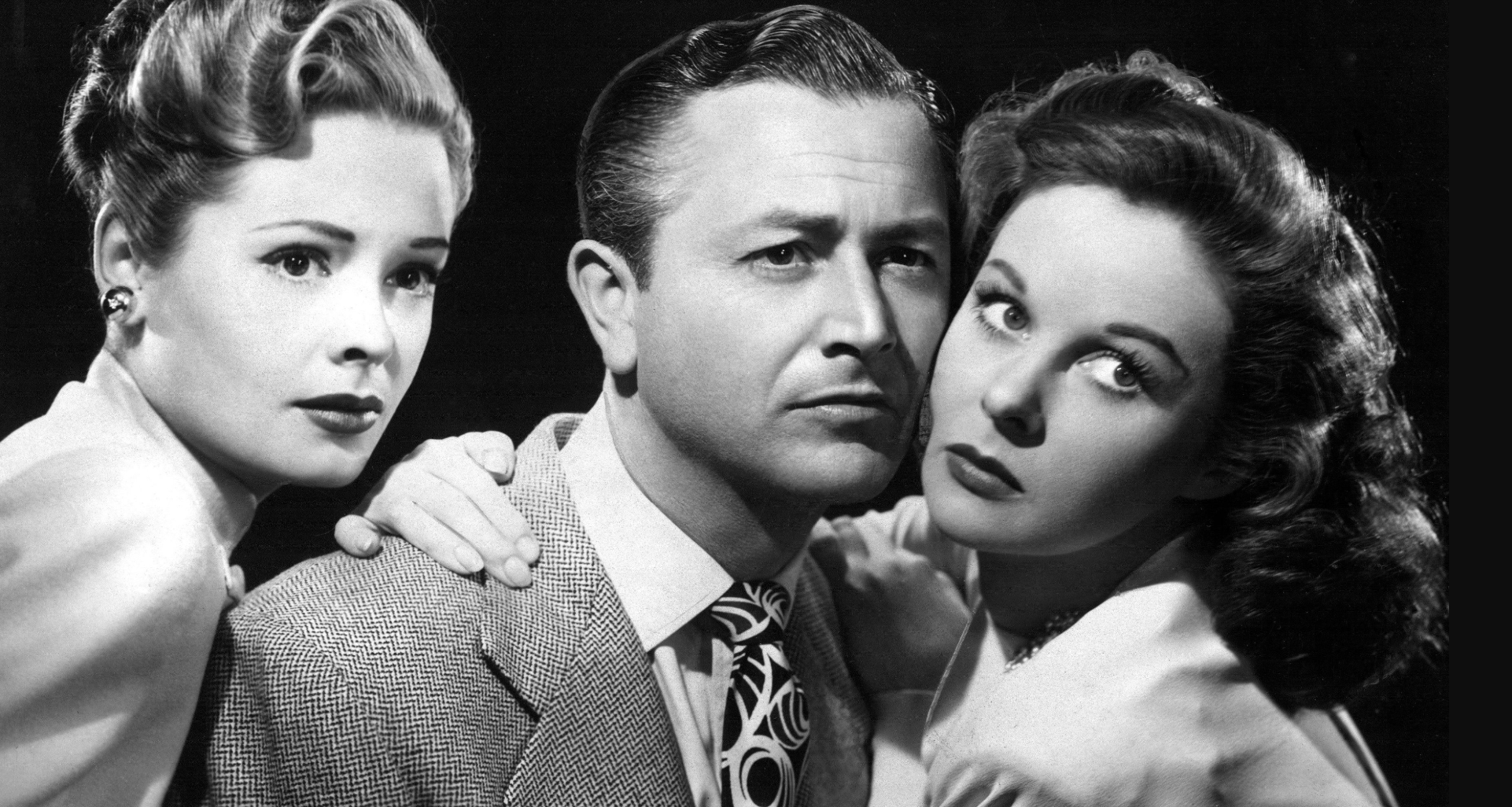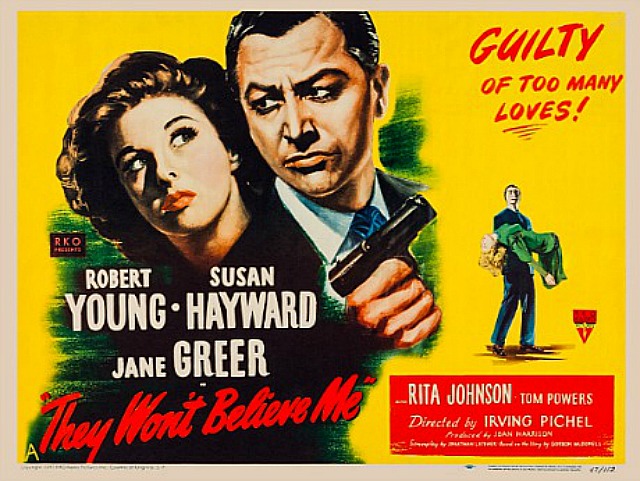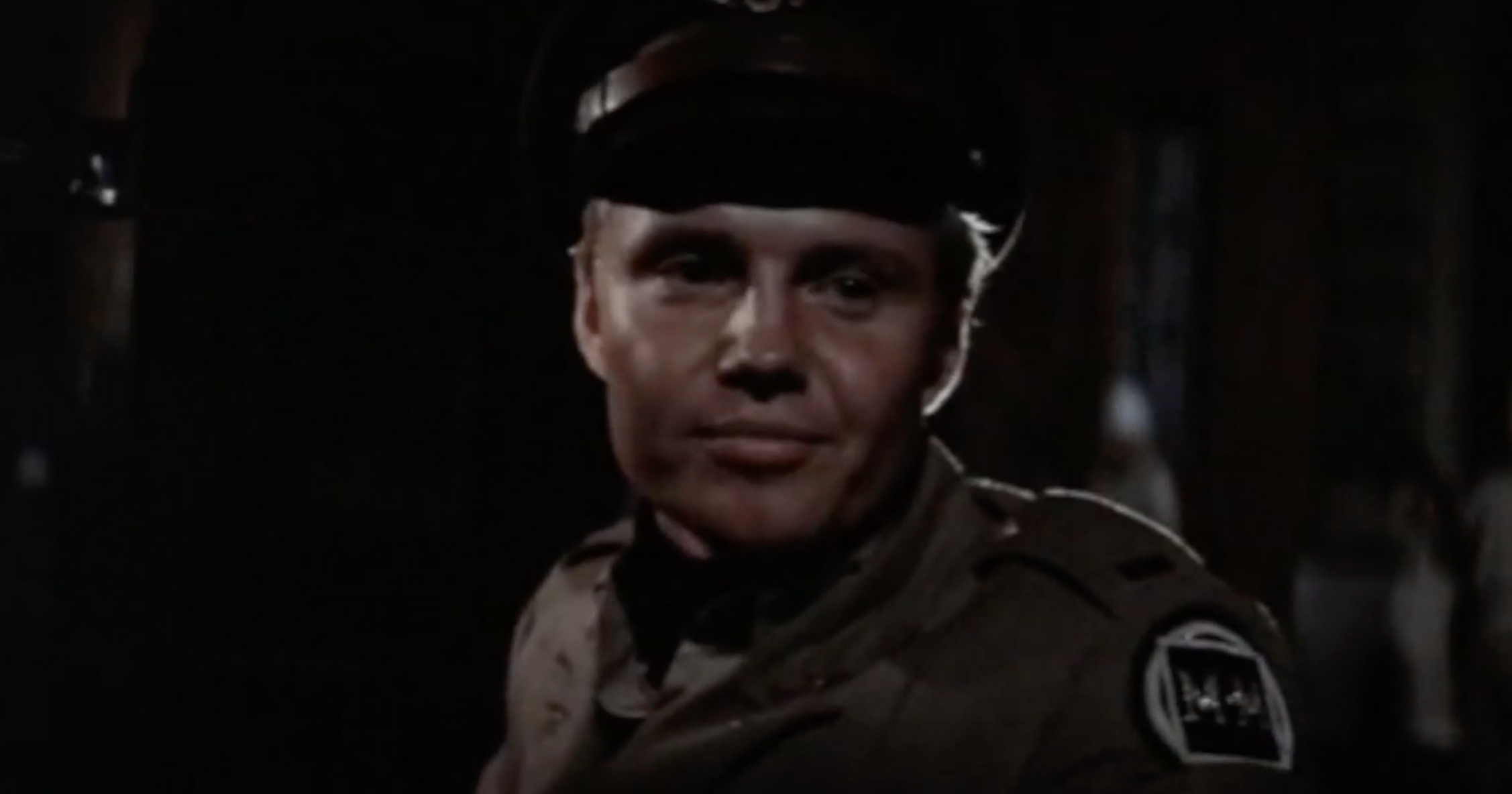When it comes to 2020 Oscar nominations, Hollywood Elsewhere is partly run-of-the-mill and partly…well, a bit peculiar. In some ways I’m a lot like Scott Feinberg, and more similar than not to Sasha Stone. But I’m everybody’s brother and son. I ain’t much different from anyone. Well, in some ways I am.
Advance warning: Bong Joon-ho‘s over-praised social dramedy will wind up Best Picture nominated (along with a locked nom for Best International Feature), but it must not and can not win in the former category…no!
Best Picture in order of likelihood: The Irishman, Once Upon a Time in Hollywood, 1917, Parasite, Joker, Marriage Story (6). Outliers: Little Women (will a series of impassioned journalist columns and the ever-present Twitter fervor push it through?), Jojo Rabbit (too broad, too comedically tidy, lacking in boldness), Ford v Ferrari (respectable character-driven drama, excellent race-car footage), Knives Out (VERY clever, first-rate popcorn whodunit), Uncut Gems (an endurance test to sit through, the Safdies are sadists). (5)
Best Director in order of likelihood: Martin Scorsese, The Irishman; Quentin Tarantino, Once Upon a Time in Hollywood; Sam Mendes, 1917; Bong Joon-ho, Parasite; Todd Phillips, Joker. (5)
Possible surprise omission: Noah Baumbach, Marriage Story (not much momentum over last four months, might fall by the wayside). Forget it: Taika Waititi, Jojo Rabbit.
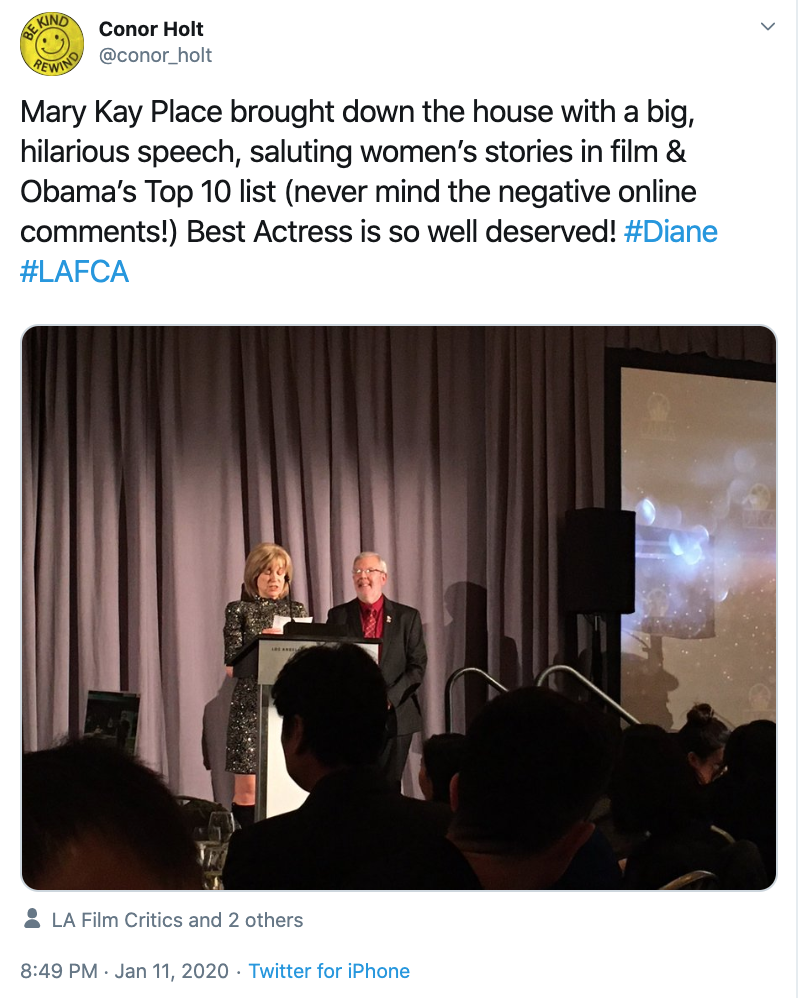
Best Actor in order of likelihood: Joaquin Phoenix, Joker; Adam Driver, Marriage Story; Jonathan Pryce, The Two Popes; Antonio Banderas, Pain and Glory; Taron Egerton, Rocketman.
Not happening: Leonardo DiCaprio, Once Upon a Time in Hollywood (nobody has said boo about Leo’s performance — all the heat has been about Brad).
Best Actress in order of likelihood: Renée Zellweger, Judy; Scarlett Johansson, Marriage Story; Charlize Theron, Bombshell; Saoirse Ronan, Little Women; Awkwafina, The Farewell.
Shameful omission of the best female lead performance of the year: Mary Kay Place, Diane.
Forget it: Lupita Nyong’o, Us. Not a chance: Cynthia Erivo, Harriet.
Best Supporting Actor in order of likelihood: Brad Pitt, Once Upon a Time in Hollywood; Al Pacino, The Irishman; Joe Pesci, The Irishman (will cancel each other out), Tom Hanks, A Beautiful Day in the Neighborhood; Jamie Foxx, Just Mercy.
Not likable enough: Anthony Hopkins, The Two Popes. Too broad: Taika Waititi, Jojo Rabbit.
Best Supporting Actress in order of likelihood: Laura Dern, Marriage Story; Jennifer Lopez, Hustlers; Kathy Bates, Richard Jewell. (3) Possible: Shuzhen Zhao, The Farewell.
Should be nominated but won’t be: Julia Butters, Once Upon a Time in Hollywood.
Unworthy contenders: Scarlett Johansson, Jojo Rabbit (because her character was hung?); Margot Robbie, Bombshell (because Roger Ailes humiliates her in that one agonizing scene?); Nicole Kidman, Bombshell (because she delivers a prim-and-proper performance that she could have performed in her sleep?).

